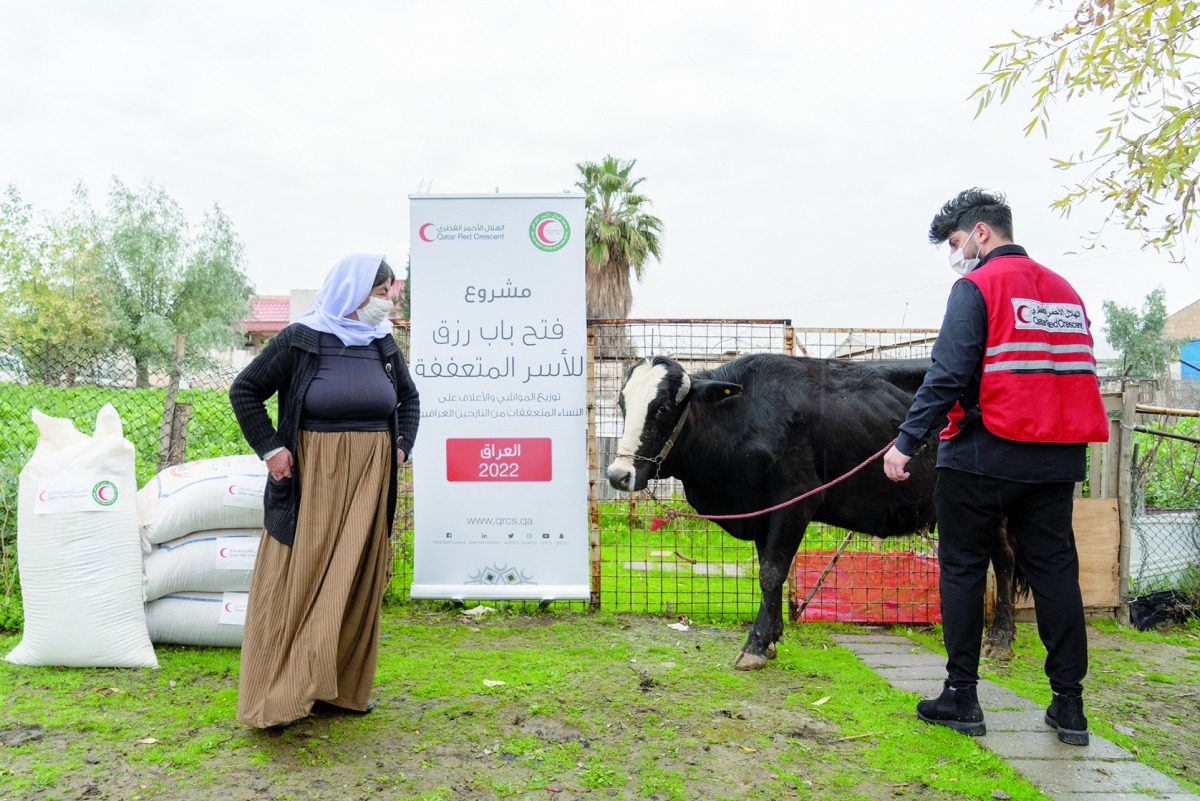Around 1.2 million people are internally displaced within Iraq.
The Qatar Red Crescent Society’s (QRCS) Iraqi representative is working on a project to help disadvantaged families in Iraqi Kurdistan and support their livelihoods.
The 15-month project, which has a total budget of $202,579, focuses on displaced Iraqis in and outside of camps, as well as underprivileged families from the host community.
It aims to empower internally displaced persons (IDPs) in camps, those living outside of camps, and the most vulnerable returnees by assisting them in securing basic requirements such as health care, food, education, and other services.
A goal is also to improve livelihoods by supporting agricultural activities, livestock breeding, and vocational training, thereby giving people a source of income and minimising reliance on humanitarian relief and passive adaption techniques.
The project will provide 31 women who don’t live in camps and who support their families with a stable source of income and safe and adequate living conditions for both them and their families.
Another aspect of the project is providing practical sewing skills training to female breadwinners in 20 displaced households in Erbil’s Bahirka camp. This will provide them with basic services like education, food, and health care.
The activities include conducting a field assessment of poor displaced families at camps in Erbil’s Khabat district, and both the Khanke and Sharya towns in Dohuk. The beneficiaries are identified based on eligibility. QRDCS will be conducting a field assessment of poor and displaced families headed by women at the Bahirka camp in Erbil, and selecting beneficiaries of vocational training, among others.
Sheep have already been provided to 20 non-camp displaced women in Khanke and Sharya in Dohuk, as well as 10 needy local women in Khabat. Eight of them each got a dairy cow and 600 kg of fodder, while 23 women got three sheep, four chickens, one rooster, and 225 kg of fodder.
Internal displacement in Iraq
An internally displaced person is a person who is forced to leave their home but remains within the borders of their country. They are frequently referred to as refugees, despite the fact that they do not meet the legal standards.
Within Iraq, around 1.2 million people are internally displaced, with more than half of them having been there for more than four years, and 4.1 million people require humanitarian aid. People’s ability to return home is hampered by insecurity, a lack of livelihood, and destroyed or damaged housing.
Internal displacement in Iraq has a long history, entrenched in sectarian and ethnic tensions and fueled by decades of authoritarian government, armed conflict, the American invasion, and, most recently, the fight against ISIL.
The most recent wave of migration began in late 2012, when ISIL began to take over vast areas of land, resulting in massive displacement in the years that followed.
New displacement has decreased since the formal end of the fight against the organisation in December 2017, and people have begun to return home. Since then, annual returns have outweighed new displacements.







